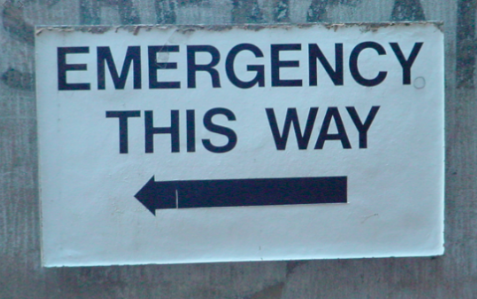Category Archives: Uncategorized
A Corona Chronology
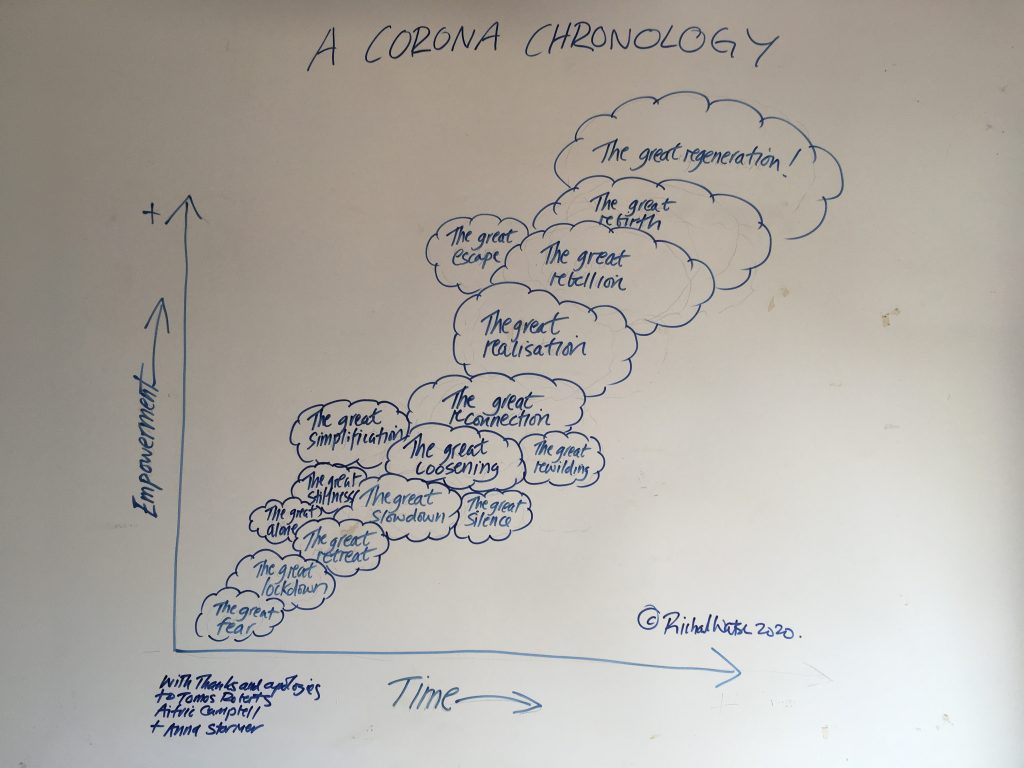
A timeline for Corona (Covid-19). I must stress that this is not what I think will happen, but rather what I would like to happen. And it will happen if enough people wish it so.
One axis is time. The other is empowerment (+/-), although I suppose it could also be an optimism/pessimism axis. The running order is; the great fear, the great lockdown, the great
retreat, the great slowdown, the great loosening, the great reconnection, the great realisation, the great rebellion, the great rebirth, and the great regeneration.
Spin offs are the great alone, the great stillness, the great simplification, the great silence, the great rewilding and the great escape.
Where did this come from? The writer Aifric Campbell mentioned a “loosening” to me. I then watched The Great Realisation by the poet Tomos Roberts and then I listened to a talk online by a colour forecaster called Anna Starmer. All these streams met in my subconscious last night and hey presto, quite a good doodle. Why on a wall? Why not. Big ideas need big spaces..
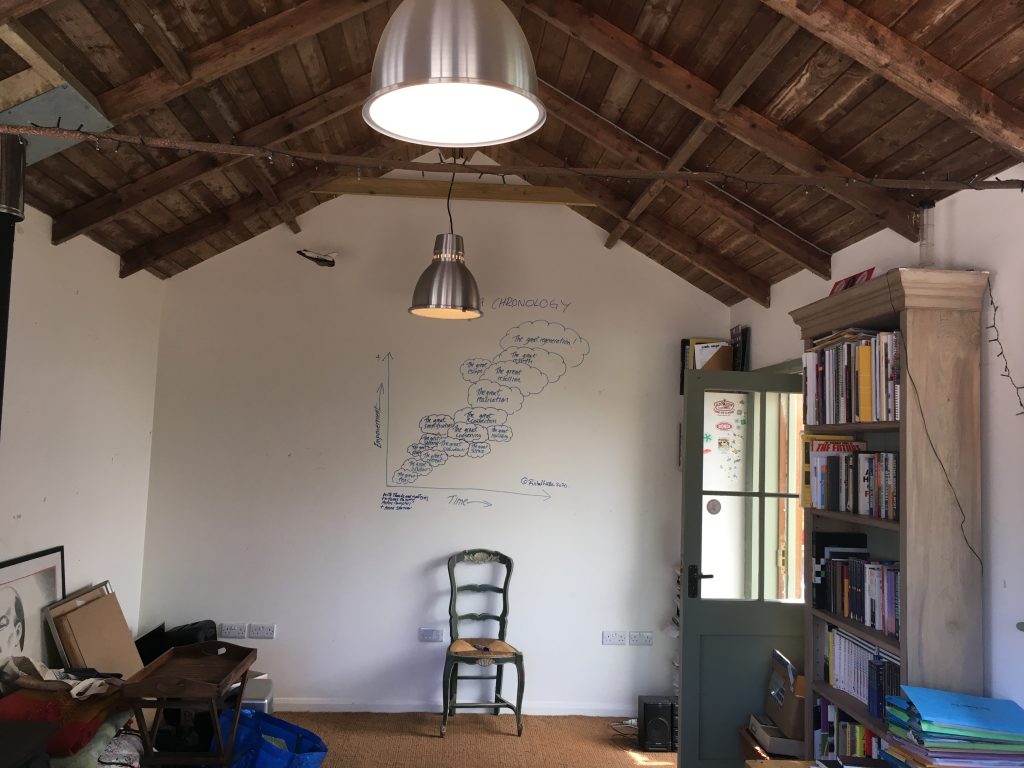
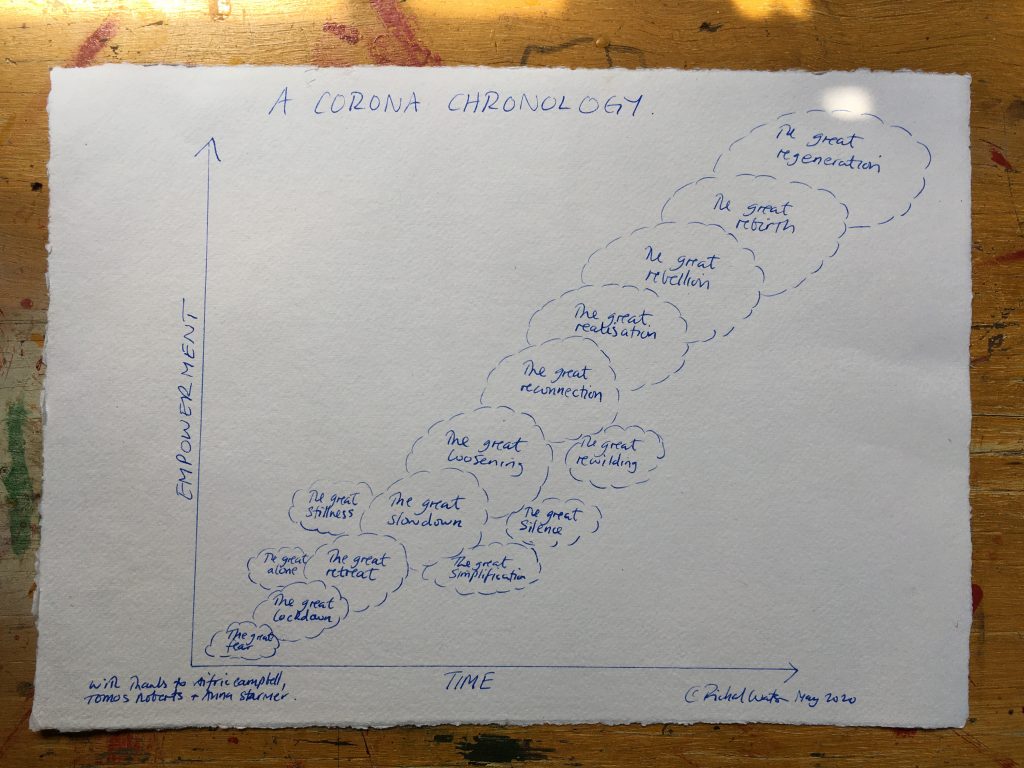
BTW, one thing one might add would be The Great Depression, but hopefully not. I’d also think of adding Rise of the Humans somewhere too. Always remember, the future will be whatever enough people want it to be.
The scream (redux)

I’m supposed to be flying to Sydney, but…

Something from the archive
From issue 22 of What’s Next (June/July 2009).
We’ve had Spanish flu (1918-19), Asian flu (1957) and Hong Kong flu (1968-69). Then we had SARS, bird flu and recently, swine flu. There is also seasonal flu, which appears every winter and kills about 250,000 people annually, although this is often forgotten. The idea, “community of anxiety”, was coined in 2004 by the writer, Ian McEwan, in Saturday, a novel about events surrounding the Iraq war. A similar idea is information pandemics. Both ideas describe the way fear and anxiety are spreading throughout the world, fuelled primarily by the interconnectivity of digital communications. It can start with a single email, spread to a blog and end up on Twitter. The result is global panic on an unseen scale and outbreaks are difficult to contain.
In early May, the World Health Organization talked about the need to stockpile food and water due to the swine flu outbreak and raised the threat level to five out of a possible six. Meanwhile, airports were installing thermal scanners and newspapers revelled in the story as it grew more scary and spectacular. The whole world seemed to be running for cover wearing a variety of (mostly useless) facemasks. Fear was spreading fast, fed with a mixture of confusion and impotence. The threat is real enough. The 1918 outbreak killed 20-50 million people in less than 18-months while the Black Death in the 14th century wiped out a third of the European population in just two years. Even the Asia and Hong Kong pandemics killed about 1-2 million people apiece. But we are confusing what’s possible with what’s probable. The reason is a collective feeling – a mood if you like – that something big and nasty is coming our way. This is partly because a string of events, from 9/11 and climate change to the economic collapse, have left us feeling unsure about what’s next. It is possible that a real pandemic will eventually emerge.
It will probably start in an overcrowded Asian city and travel economy class on a jet to the US and Europe. We may be able to contain it or we may not. The science surrounding such things is uncertain. Interestingly though, there appears to be a sense that we deserve things like this to happen to us. In some way, we are collectively guilty (because we borrowed too much money or damaged the planet with our selfish, materialist ways, perhaps) and we need to be punished. There is also a warped sense of curiosity at play. What would the world look like after a genuine pandemic? Would the death of 50 million people give everyone more food to eat? Another example of the fear factor was the jet that flew low over New York in early May. People automatically assumed another terrorist attack and panic whipped around Manhattan like wildfire. It turned out to be someone taking photographs but by then it was too late. And this, perhaps, is the point. Information now flows around the world too quickly and there is not enough time to properly react or to separate fact from opinion, anecdote from analysis, or sensation from science. There is too much information and much of it is unreliable.
Thanks to Web 2.0 the old hierarchy of knowledge, where source related to trustworthiness and reliability, has broken down. Furthermore, the people we used to trust (scientists, politicians, religious figures) are now widely distrusted so we ignore them. Swine flu is killing about 0.1% of those it infects; the mortality rate for the 1918-19 variety was 2.5-5.0%. So very few people have died so far. This could still change but I doubt it. Nevertheless, the sense of impending apocalypse remains.
Ref: Sydney Morning Herald (Aus) 2-3 May 2009, ‘Fear fever’, J. Huxley. www.smh.com.au See also The Fourth Horseman: A history of epidemics, plagues and other scourges by Andrew Nikiforuk, Panicology by Simon Briscoe and Hugh Aldersey-Williams and Risk: The science & politics of fear by Dan Gardner.
Friday Fun
Information Pandemic
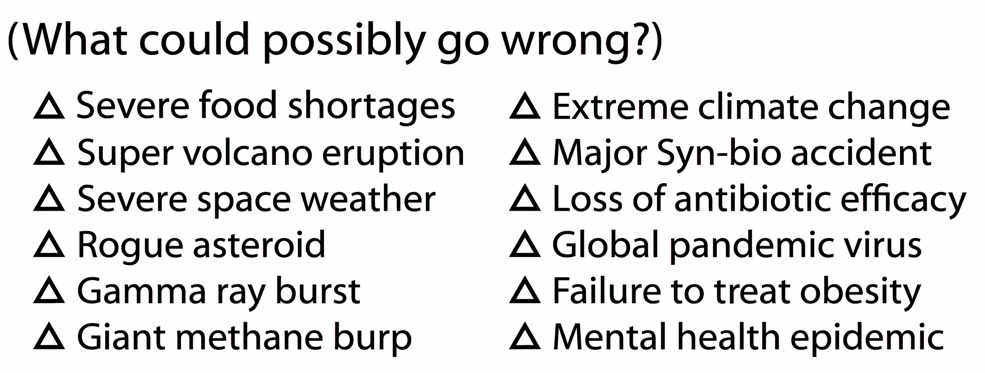
It’s interesting to me to see how the media, and hence the public, are responding to Coronavirus (I think that’s the correct way around, but it’s hard to say who’s leading who sometimes). The risk of death is remote (a mortality rate of between 0.7% and 3.0% currently depending on circumstances and location), which is almost nothing. Ebola had a mortality rate of 60%, SARS 10%. The numbers 0.7-3.0 are still significant if applied across a while population, but the response of the media, and hence governments and people, generally seems over the top.
I think that perhaps the reason for this might be the current narrative, which is doomsday apocalyse (think of climate change and species extinction in particular). It’s also got something to do with how we think about the future generally, which is logical but hugely unhelpful (we simply extrapolate from current data or conditions in a linear manner) and perhaps the fact that people are generally dreadful at working out real probabilities or understanding the impact of feedback loops, counter-trends or unexpected events.
And, of course, connectivity is fuelling everything. It’s spreading the virus, but it’s also spreading panic about the virus. News is travelling to fast to be properly analysed, fact checked or placed in proper context.
Anyway, as they say, my particular interest at the moment is how the current panic about Coronovirus might work with other anxities to create some kind of super-anxiety or mental collapse (shades of Future Shock – see After Shock). I eluded to this somewhat when I created my risk radar and spoke of unseen combinations of events and put Global pandemic alongside Loss of antibiotic efficacy, Mental health epidemic and Global financial system collapse. The thought was repeated on the list of global gamechagers on my map of mega-trends.
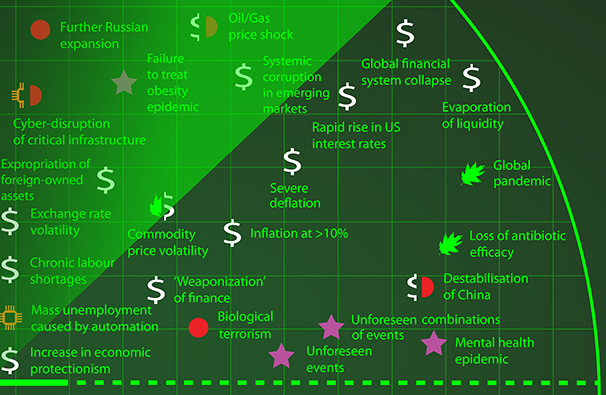
So what to do? I think the Stoics have it nailed. Worry about or do something about what you can influence, or control, and don’t worry or try to control about what you can’t. In the words of Seneca, “The greatest obstacle to living is expectancy, which hangs on tomorrow and loses today.” Or, as he also put it, “You are arranging what lies in Fortune’s control, and abandoning what lies in yours.” It will be what it will be.
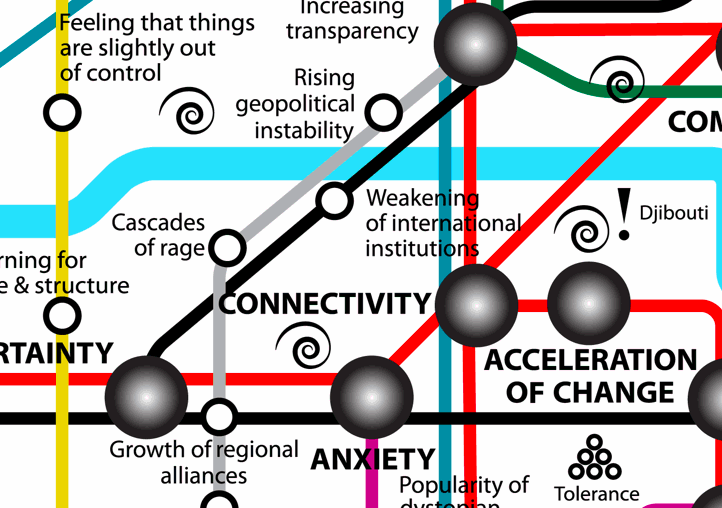
Found in the road
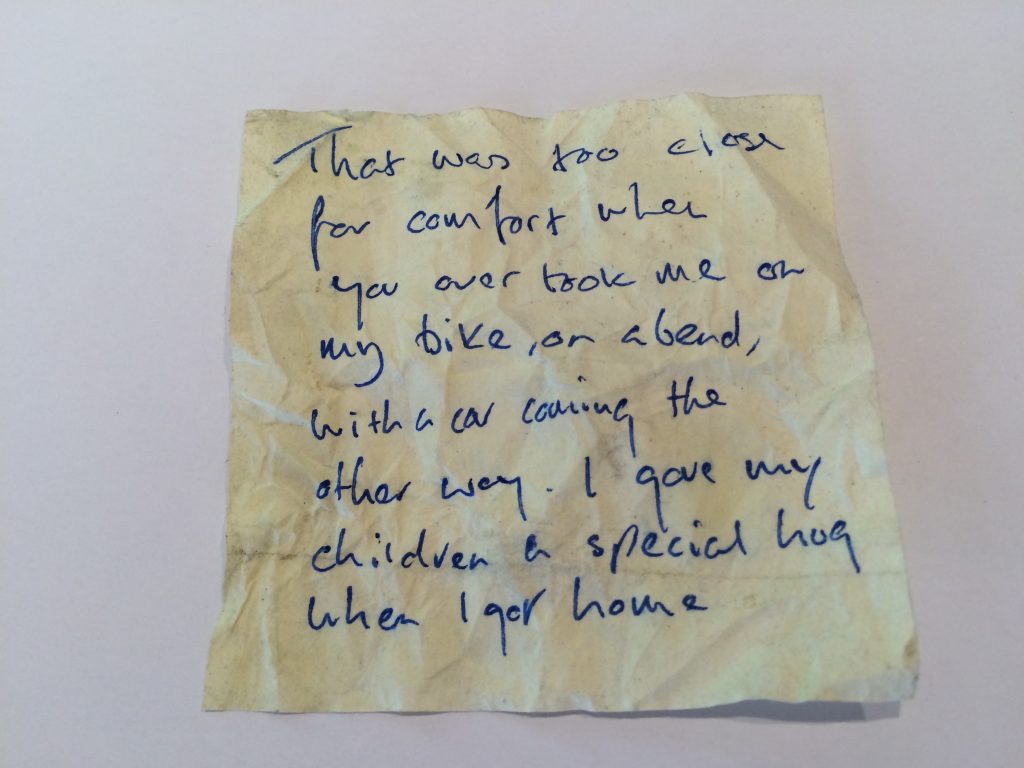
Word of the Week: Mooch
The Future of Computers (from 1981)
And another little gem…from 1987.

